Why you should see the ‘Radical Jew’
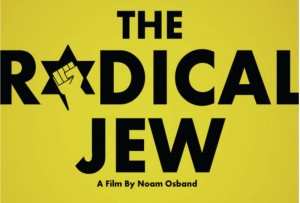 One of the films juried into this year’s Fort Myers Film Festival is The Radical Jew. The documentary probes the background, philosophy and worldview of an Israeli ideologue by the name of Baruch Marzel.
One of the films juried into this year’s Fort Myers Film Festival is The Radical Jew. The documentary probes the background, philosophy and worldview of an Israeli ideologue by the name of Baruch Marzel.
Marzel is an American-born settler who lives in the heart of Hebron, the epicenter of violence in the 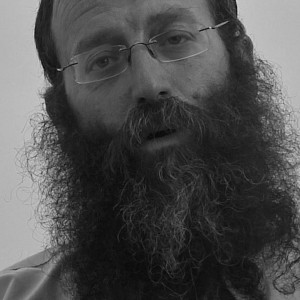 Israel-Palestine conflict. He was the leader of a far-right political group known as Kach, which Israel banned in 1995 as a terrorist organization. Marzel learned the dogma he espouses today from the Kach party’s founder, Meir Kahane. A rabbi, Kahane started the Jewish Defense League in New York City in the 1960s before moving to Israel in 1971 and winning a seat in the Israeli Parliament in 1984.
Israel-Palestine conflict. He was the leader of a far-right political group known as Kach, which Israel banned in 1995 as a terrorist organization. Marzel learned the dogma he espouses today from the Kach party’s founder, Meir Kahane. A rabbi, Kahane started the Jewish Defense League in New York City in the 1960s before moving to Israel in 1971 and winning a seat in the Israeli Parliament in 1984.
Among the legislation that he proposed were laws banning marriage between Jews and Arabs and creating 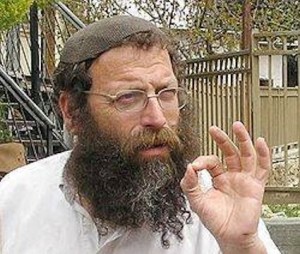 segregated beaches. When filmmaker Noam Osband questioned Marzel about the similarity between those proposals and Hitler’s 1935 Nuremberg Laws, which prohibited and invalidated marriage between Jews and Germans and criminalized extramarital relations between Jews and German citizens, he flatly replied that he does not hate Arabs because they’re Arabs, but because “they are our enemy.” From this statement, you might reasonably conclude that
segregated beaches. When filmmaker Noam Osband questioned Marzel about the similarity between those proposals and Hitler’s 1935 Nuremberg Laws, which prohibited and invalidated marriage between Jews and Germans and criminalized extramarital relations between Jews and German citizens, he flatly replied that he does not hate Arabs because they’re Arabs, but because “they are our enemy.” From this statement, you might reasonably conclude that 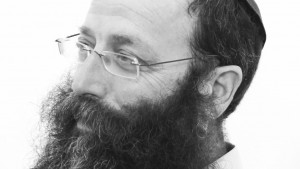 The Radical Jew is a documentary about the Israeli-Palestinian conflict. But it’s not. It is a film about extremism and that’s why everyone who attends the Seventh Annual Fort Myers Film Festival should make a point of seeing this film.
The Radical Jew is a documentary about the Israeli-Palestinian conflict. But it’s not. It is a film about extremism and that’s why everyone who attends the Seventh Annual Fort Myers Film Festival should make a point of seeing this film.
Extremists come in all shades and stripes. Viewed 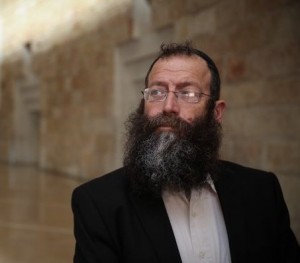 from that perspective, the film has universal application. Muslim extremists and White Supremacists would sound just like Baruch Marzel because they see the world in terms of us versus them. Many think that extremists are sociopaths, estranged from society and largely devoid of close relationships with family and friends. But as The Radical Jew illustrates, extremists are often loving spouses, devoted parents, good neighbors and model citizens. And that’s a major point filmmaker Noam
from that perspective, the film has universal application. Muslim extremists and White Supremacists would sound just like Baruch Marzel because they see the world in terms of us versus them. Many think that extremists are sociopaths, estranged from society and largely devoid of close relationships with family and friends. But as The Radical Jew illustrates, extremists are often loving spouses, devoted parents, good neighbors and model citizens. And that’s a major point filmmaker Noam 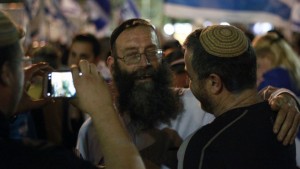 Osband hopes to bring out through his documentary.
Osband hopes to bring out through his documentary.
But it is precisely this aspect of the film that viewers are likely to find most troubling. For example, during the film’s screening at January’s edition of T.G.I.M., one audience member was 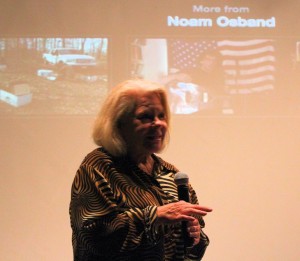 incensed by a scene in the film during which Marzel speaks graphically about seven Syrian commandos he killed in Lebanon (including three unarmed men he’d taken as prisoner) that was followed by a scene in which he dances with his grandchildren, slipping pieces of pink cotton candy into their mouths.
incensed by a scene in the film during which Marzel speaks graphically about seven Syrian commandos he killed in Lebanon (including three unarmed men he’d taken as prisoner) that was followed by a scene in which he dances with his grandchildren, slipping pieces of pink cotton candy into their mouths.
“[The filmmaker] is trying to portray this extreme person who kills people as a good man,” she protested.” That disturbed me. No. He is a killer.”
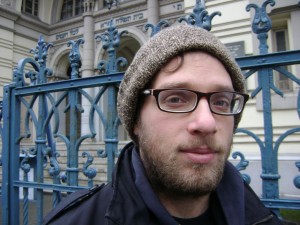 Others were similarly affronted by the filmmaker’s perceived effort to humanize Marzel. But through his use (perhaps even overuse) of sympathy-inducing and empathy-provoking close-up footage of the man speaking and interacting lovingly with his sons and his grandchildren, filmmaker Noam Osband brings into focus the deeper, even more troubling disconnect that often exists between a person’s political ideology and religious
Others were similarly affronted by the filmmaker’s perceived effort to humanize Marzel. But through his use (perhaps even overuse) of sympathy-inducing and empathy-provoking close-up footage of the man speaking and interacting lovingly with his sons and his grandchildren, filmmaker Noam Osband brings into focus the deeper, even more troubling disconnect that often exists between a person’s political ideology and religious 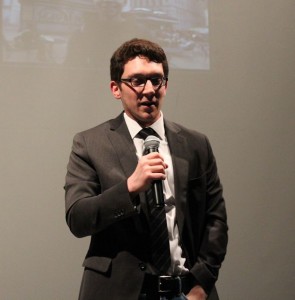 views and their family life.
views and their family life.
“When we encounter people with views that are strong and that we might not agree with, we’re unnerved by thinking about them being human beings, too,” says Osband.
It’s a phenomenon known as the Eichmann/Stangl paradox.
Adolf Eichmann who was the mastermind of the German’s “Final Solution to the Jewish Question” that resulted in the extermination of 6 million Jews. 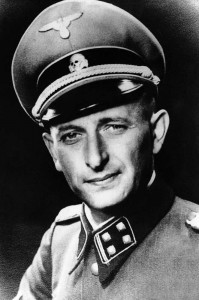 Franz Stangl served as commandant of the Sobibor and Treblinka extermination camps. “From Eichmann and Stangle on down, 90 percent of [the Nazis who ran and staffed the death camps] – sometimes before the war and certainly after the war – were solid family men and women, devoted to their children, loyal to their relatives, hard-working, tax-paying good citizens and good neighbors who did their duty, tended their gardens and seldom made trouble for anyone,” notes Holocaust survivor and Nazi hunter Simon Wiesenthal. “But when they put on the uniform, they became something else: monsters, sadists, torturers, killers, desk murderers. The minute they took off the uniform, they became model citizens again.”
Franz Stangl served as commandant of the Sobibor and Treblinka extermination camps. “From Eichmann and Stangle on down, 90 percent of [the Nazis who ran and staffed the death camps] – sometimes before the war and certainly after the war – were solid family men and women, devoted to their children, loyal to their relatives, hard-working, tax-paying good citizens and good neighbors who did their duty, tended their gardens and seldom made trouble for anyone,” notes Holocaust survivor and Nazi hunter Simon Wiesenthal. “But when they put on the uniform, they became something else: monsters, sadists, torturers, killers, desk murderers. The minute they took off the uniform, they became model citizens again.”
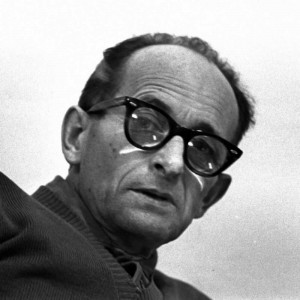 Adolf Eichmann’s wife could never envision or accept that the man she loved and with whom she shared her life could orchestrate the murder of six million men, women and children.
Adolf Eichmann’s wife could never envision or accept that the man she loved and with whom she shared her life could orchestrate the murder of six million men, women and children.
Theresa Stangl refused to accept the reality of her husband’s deeds during World War II. “Never, never did he strike or spank the children,” she argued. “He was an incredibly good and kind father. He played with the children by the hour. He made them dolls, helped them dress them up. He worked with them; taught them innumerable things. They adored 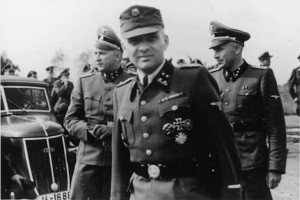 him – all three of them. He was sacred to them.” And yet, more than one million prisoners died under his command at Sobibor and Treblinka.
him – all three of them. He was sacred to them.” And yet, more than one million prisoners died under his command at Sobibor and Treblinka.
Wiesenthal never solved the Eichmann/Stangl paradox. Nor did Stangl biographer Gitta Sereny, who wrote Into that Darkness: An Examination of 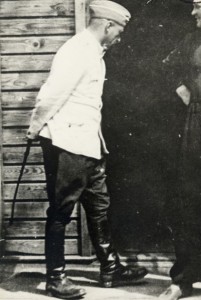 Conscience. Which is why films like The Radical Jew are still important in 2017. The point is not to humanize extremists like Baruch Mazel, but to understand and appreciate the fact that even though someone may be a loving father and grandfather, he nevertheless has the ability to perform horrific acts in furtherance of political ideology, religious belief or duty to some higher authority who does all the thinking and demands blind allegiance from his followers.
Conscience. Which is why films like The Radical Jew are still important in 2017. The point is not to humanize extremists like Baruch Mazel, but to understand and appreciate the fact that even though someone may be a loving father and grandfather, he nevertheless has the ability to perform horrific acts in furtherance of political ideology, religious belief or duty to some higher authority who does all the thinking and demands blind allegiance from his followers.
“The film showed a man with extreme political views but at the same time who is a human being,” acknowledged another T.G.I.M. audience member. “But it would have been more useful had [the filmmaker] included Palestinians who had the same sort of attributes, or left-wing Israelis. It would have given the film broader 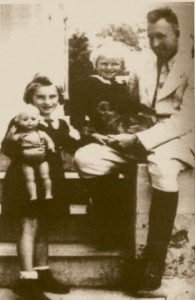 context.”
context.”
Perhaps, but The Radical Jew makes the point even in isolation.
“We’re all subject to outside influences that make us who we are,” noted someone else. “And hopefully we can grow beyond the hatred.”
But how, as a society, do we accomplish such a lofty goal? Is it even possible to prevent seemingly good and decent people from becoming radicalized? Is it feasible in any day and age for people to assume responsibility for their own thoughts and belief structure rather than allow autocrats and demagogues to think for them? And are we creating an environment conducive to creating more and more extremists as we become more 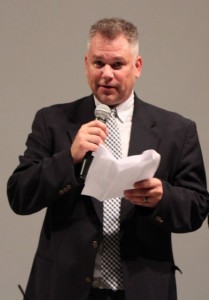 polarized and less willing or able to compromise or even exchange ideas with people who do not think like us?
polarized and less willing or able to compromise or even exchange ideas with people who do not think like us?
“That’s why it is important to show a film like The Radical Jew,” Eric Raddatz suggests. “How else and where else will we have the opportunity to have a conversation such as this?”
Indeed.
February 11, 2017.
RELATED POSTS.
- ‘Radical Jew’ awards and accolades
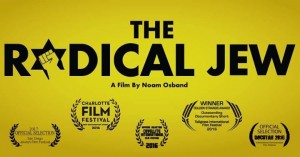 Why you should see ‘The Stairs’
Why you should see ‘The Stairs’- Why the filmmakers made ‘The Stairs’
- Overview of the 7th Annual Fort Myers Film Festival














 Tom Hall is both an amateur artist and aspiring novelist who writes art quest thrillers. He is in the final stages of completing his debut novel titled "Art Detective," a story that fictionalizes the discovery of the fabled billion-dollar Impressionist collection of Parisian art dealer Josse Bernheim-Jeune, thought by many to have perished during World War II when the collection's hiding place, Castle de Rastignac in southern France, was destroyed by the Wehrmacht in reprisal for attacks made by members of the Resistance operating in the area. A former tax attorney, Tom holds a bachelor's degree as well as both a juris doctorate and masters of laws in taxation from the University of Florida. Tom lives in Estero, Florida with his fiancee, Connie, and their four cats.
Tom Hall is both an amateur artist and aspiring novelist who writes art quest thrillers. He is in the final stages of completing his debut novel titled "Art Detective," a story that fictionalizes the discovery of the fabled billion-dollar Impressionist collection of Parisian art dealer Josse Bernheim-Jeune, thought by many to have perished during World War II when the collection's hiding place, Castle de Rastignac in southern France, was destroyed by the Wehrmacht in reprisal for attacks made by members of the Resistance operating in the area. A former tax attorney, Tom holds a bachelor's degree as well as both a juris doctorate and masters of laws in taxation from the University of Florida. Tom lives in Estero, Florida with his fiancee, Connie, and their four cats.